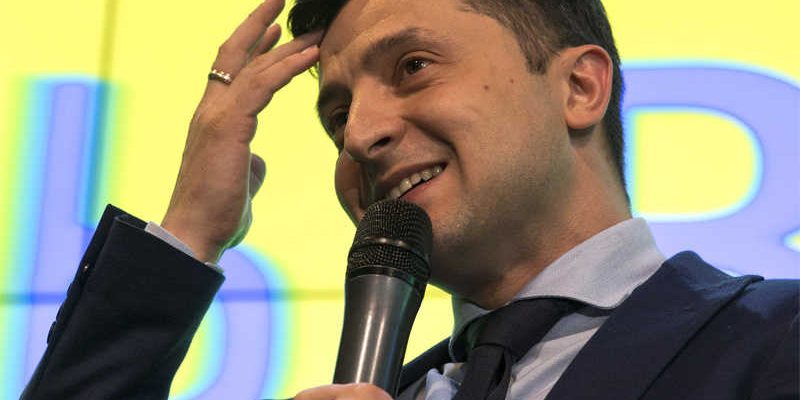KIEV: Ukraine’s election has catapulted , a 41-year-old standup comedian and television star with no political experience, into the nation’s top job.
As leader of a country dependent on international aid and battling separatists, Zelensky will have to deal with Russian President , deep economic problems and possibly rebellious elites.
Here is a look at the main challenges facing Ukraine’s sixth president:
Voters expect the new commander-in-chief to end a five-year war with Moscow-backed separatists in the industrial east.
The conflict has claimed some 13,000 lives since 2014 and is a huge burden on the economy and society.
Despite numerous attempts to staunch the bloodletting, the conflict regularly claims the lives of soldiers and civilians, and a solution is nowhere in sight.
Zelensky’s rival accused the comic of lacking the gravitas and stamina to stand up to Putin.
But analysts say Zelensky could use his outsider status to strike a political deal with the Kremlin, which has said it does not want to deal with Poroshenko.
“Zelensky will look for diplomatic solutions and try to avoid settling the conflict through military means,” said Ukrainian political expert Mykola Davydyuk.
In a major faux pas during Friday’s debate with Poroshenko, Zelensky called the separatists “rebels”, sparking the military’s anger.
“We do not have ‘rebels’,” Ukraine’s General Staff said on Twitter. “We have Russian aggression.”
Zelensky said he would not resort to force to take back Crimea, which was annexed by Russia in 2014.
After a popular uprising ousted a Kremlin-backed regime in 2014, the new Ukrainian government secured a $17.5 billion deal led by the International Monetary Fund to buttress the struggling economy.
But the disbursement of the funds has often been delayed as Poroshenko’s government has struggled to push through reforms required by the IMF, including anti-corruption measures and raising household gas prices.
Zelensky said he will continue cooperating with the IMF and promised to do whatever is necessary to service the country’s debt.
Analysts warn that he is facing a huge challenge as Ukraine’s debt obligations peak in the next few years.
“In the next three years Ukraine will have to pay off more than $20 billion in state debt,” said Oleksandr Parashchiy, head of research at Concorde Capital, a Kiev-based investment bank.
“It’s not exactly clear where the money would come from.”
Economic growth is also slowing down, added Parashchiy. “He’ll have to do something with that, too.”
Zelensky does not have a firm economic programme, though his team does include Poroshenko’s former finance minister, Oleksandr Danylyuk.
The young president will also have to rein in oligarchs who wield huge influence and prove to supporters he is not in the employ of tycoon Igor Kolomoysky, whose channel broadcast his shows.
Zelensky will also have to demonstrate his ability to negotiate with various political forces to push through much-needed reforms.
He does not have a proper political party of his own and will likely face huge resistance in parliament where Poroshenko’s faction has the most seats.
“It would be very hard for Zelensky to secure parliament’s support,” said Anatoliy Oktysyuk, an analyst with Democracy House, a Kiev-based think tank.
“He will have a hostile parliament on his hands.”
Parliamentary elections are set to take place in October.
Poroshenko and former prime minister , who was knocked out of the presidential race during the first round of voting last month, may be looking for revenge during the legislative polls.
Analyst Davydyuk said assembling the right team will be crucial for the neophyte president.
“The main challenge for Zelensky is neither the army nor the war with Russia,” he said.
“It is putting together a team: who will be his chief of staff, his deputies, who will fill the key positions.”
Analysts say Ukrainians expect radical change quickly so Zelensky will have to move fast before he faces a possible legitimacy crisis.
“Everyone will criticise him,” Oktysyuk said. “I have a feeling Zelensky will soon fizzle out and everything might end with impeachment.”
